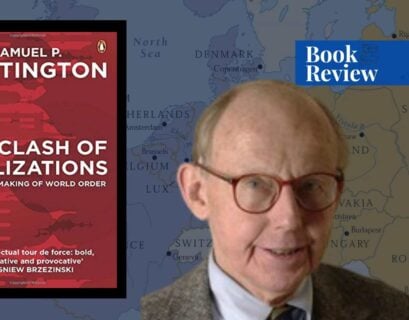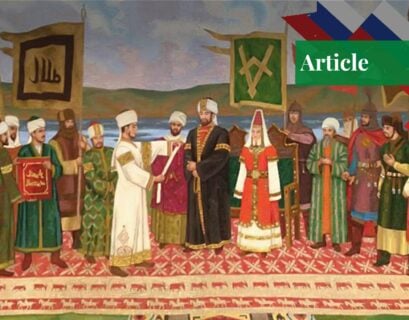Adam Abass is an undergraduate student of political science and international relations. His research focuses on Middle Eastern politics, counter-terrorism, peace, and security in Africa.
Introduction
States around the world have resorted to the use of private military companies (PMCs) for wars within and across borders. The 21st-century wars have led to a surge in the growth of private military companies and their deployment in state-led military missions abroad. The military profit-driven industry has seen huge booms in contract missions with states in recent years for operations like training of troops, intelligence services, combat operations, and logistical support.
The increasing involvement of private military companies in conflicts has generated a lot of outcry on why states employ them, their involvement in combat missions in conflict zones, their position in international law, and their alleged war crimes and human rights abuses.
Rise of PMCs
The growth of private military companies or mercenaries (the old term for PMC) can be attributed to the end of the Cold War and the fall of the Soviet Union, The post-Cold War era left most of the states in the international system feeling safe and more secure, which led to the downsizing of their military strength. The United States reduced its troops from 1.8 million to 1.4 million by the end of the last decade of the 20th century, It also reduced its arms and cut down on the defense budget. The reduction of military personnel made most unemployed ex-military officers sell their knowledge of defense to those in need, which is evident in the sector’s history.
Most PMC founders are ex-military personnel who created PMCs to provide defense and security services to governments and organizations on a profit basis. Due to the frequent services they provide to states and other entities, the sector has been projected to grow by $420 billion by 2029.
With states facing new emerging war threats at the beginning of the century and most significantly after the 9/11 attacks, leading to the United States War on Terror, states see PMC services as a choice to fill in the vacuum of the reduced military strength. The sector saw its largest involvement in armed conflicts in Iraq and Afghanistan and since then, it has been involved in most of the conflicts, operating in state-led wars, where PMC contractors sometimes outweigh the presence of conventional military personnel.
PMCs and International Law
The question about the role of private military companies in armed conflicts under international law still generates debate in the international community. Do states have the legal right to employ a private military company and engage in combat operations in conflict zones on behalf of the states?
The legal status to which PMC can be employed under international law can be traced to the 1989 International Convention against the Recruitment, Use, Financing, and Training of Mercenaries. Article 5 of this convention prohibits states from recruiting, financing, and training of mercenaries, and the convention also applies to PMCs who are regarded as the new mercenaries of modern warfare. But the convention seems to be ignored and not seen as applicable to private military firms due to the rebranded name “private military companies.” PMCs are considered legal corporations rather than being known as “mercenaries.”
The law of war or the international humanitarian law provides the legal framework for actors who are to be present in the conflict zone and limit their actions under the auspice of international law. The international humanitarian law, under the Geneva Convention, only recognizes state military actors to be involved in conflict situations. Thus, undermining the presence of PMCs in conflict zones and identifying them as civilians with no international legal status to participate in a conflict situation.
PMCs, however, evade sanctions for the breach of these laws because states that employed these private military contractors and the private military industry don’t see their actions as that of mercenaries, but rather as a legal corporation acting with self-regulation and under the law of the private military firm by which they are employed, in today’s warfare, PMCs act with impunity in conflict zones with the protection of powerful states who are not themselves signatories to the Convention on Mercenaries, and who need their services to foster their influence and fight incessant wars around the globe.
PMCs in Armed Conflict
In today’s warfare, PMCs have so far dominated the conflict zones by providing services to states, the involvement of private military companies has increased drastically since the United States launched its War on Terror, and other states have also utilized the services provided by PMCs for horrendous acts, to evade political or diplomatic sanction.
The height of PMC involvement in armed conflict in the 21st century can be first seen in the US military campaign in Iraq and Afghanistan where around 180,000 and 16,000 PMC contractors were deployed, respectively. The Middle East region hosts about 53,000 US private military contractors compared to the 35,000 US troops. The services of PMCs employed by the US accounted for more than half of the United States defense budget – $370 billion – in 2019. In support of the United States, the UK also deployed British-based PMCs to provide operational and combat support to British troops in Afghanistan.

Not only do the US and its allies make the use of PMCs, but their services have spread across all regions, and western states’ adversaries – Russia and China – also depend on the services provided by PMCs. Russia employed the Wagner Group, a Russia-based private military firm, and deployed contractors to countries where there is a need for the Kremlin to bolster its influence and also to protect Moscow’s allies around the globe.
The Russian PMC, the Wagner Group, has maintained its presence in the Syrian war to support the regime of Bashar Al Assad against armed rebels. The group has also been active in African states like Libya, Mali, the Central African Republic, Mozambique, and Sudan. In Libya, 2,000 Wagner Group personnel were deployed to support General Khalifa Haftar’s military assault on Tripoli in 2019. The Kremlin-linked PMC has also been active in its border state, Ukraine. The group has been fighting alongside pro-Russia separatists in Crimea since 2014 and is currently deployed to support the Russian invasion of Ukraine.
States’ increasing reliance on PMC help in boosting the profit-driven security sectors. As states go to war with each other, engage in armed conflict against non-state actors, and encounter security challenges (terrorism), they serve as an alternative to performing the role formerly done by the conventional military. However, their actions and engagement in conflict zones have done more harm than good.
War Crimes, Human Rights Abuses & PMCs
Over the years, private military companies have been accused of committing war crimes and violating human rights. With greater PMC involvement in armed conflicts, there have been increasing violations of international law by its personnel. There have been widespread allegations against PMCs about their notorious abuses (from murder, torture, and sexual harassment, to enslavement and extrajudicial killings) during wars.
The incident that sparked the outrage of PMC abuses in conflict zones was the 2007, Nisour Square massacre in Baghdad, Iraq, where private military contractors from the US’ Blackwater killed 17 unarmed civilians and injured 20. Some other private military contractors employed by the United States were also accused of torturing detainees in Abu Gharib prison in Iraq. This generated wide international condemnation and raised questions about PMC war crimes and abuses in conflicts. The Nisour Square massacre of civilians by Blackwater contractors was just the beginning of countless crimes and abuses committed by PMC in conflict zones.
The Russia-linked Wagner Group, operating in most of the world, has also been accused of a massacre in Mali alongside the Malian military in Moura village where 350 to 380 civilians were killed. The Wagner group has also been allegedly involved in aiding the massacre of civilians in Libya during General Khalifa Haftar’s assault on Tripoli in 2019 and harassing civilians in the Central African Republic.
These are among the many war crimes and human abuses committed by PMCs backed by world powers, and most of these crimes and abuses are glaring with evidence for direct prosecution against the alleged PMC. However, when lawsuits are filed for these abuses, due to how well connected and influential PMCs are, the prosecution is either slowed, ignored, or thrown out of court.
The Blackwater personnel who were accused of committing first-degree murder at the Nisour Square were prosecuted and later pardoned by the US government during Trump’s administration. This has gotten to the extent where PMC personnel commit war crimes and human rights abuses and get away with it.
Conclusion
The role played by PMCs in armed conflicts in the 21st century, and in the fight against terrorism and in Third World countries, cannot be denied. To conclude, the most contentious debate regarding PMCs in conflict zones has been around the issue of war crimes and human rights abuses being repeatedly committed by PMC personnel with no international law to sanction and regulate their engagement. Even the states that employ them do not maintain a check on their activities. It is time for the international community and states around the world to push for greater international legislation to regulate PMCs’ actions in conflict zones and hold PMCs accountable for their crimes.
If you want to submit your articles, research papers, and book reviews, please check the Submissions page.
The views and opinions expressed in this article/paper are the author’s own and do not necessarily reflect the editorial position of Paradigm Shift.


















